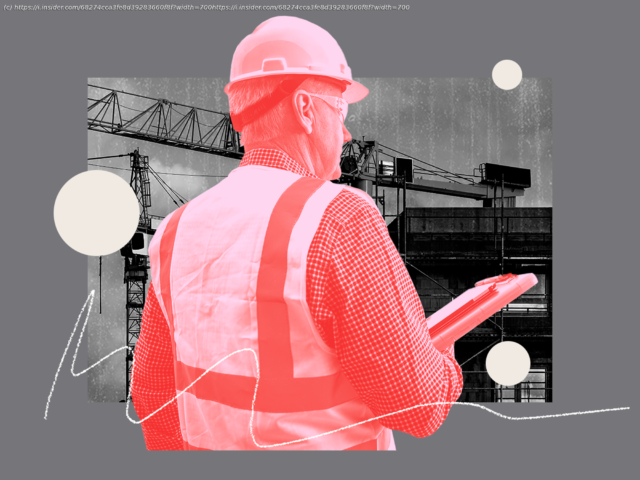More than half a million Americans over 80 continue working after retirement, earning a median wage of $57,100 in fields like education or construction.
Harvey Mendelson is no stranger to reinvention.
His career over the last six decades has pivoted from stockbrokering to real estate to car sales, with a few business launches along the way. Now, at 88, he’s discovered a new passion: photography.
Mendelson, who lives in California, owns and runs a photo gallery and digital printing business at a local live theater. He displays his work and makes fliers for the theater. It doesn’t pay much, but he doesn’t need much, he said. He has no debt, and he said that while he’s not rich, the key to staying financially comfortable has been avoiding upscaling his lifestyle in retirement.
«You retire at 65, and in three days, you’re 80», Mendelson said. «You need to try to do things you’re happy with, and for me, it’s always been being independent.»
Mendelson is one of nearly 550,000 Americans 80 and older who continue to work in some capacity. In a few years, he’ll join the 36,000 workers who are 90 or older.
Over the past three months, Business Insider has spoken to over 100 members of the Silent Generation — born between 1928 and 1945 — who still work at least part-time out of desire or necessity. They’ve included bookkeepers, lawyers, forklift drivers, Home Depot employees, and more. Most say they enjoy work and value being active and social. Many are in good health, and about half of the workers Business Insider spoke to said the extra money is helpful but not necessary.
Business Insider’s “80 over 80” series draws on interviews with more than 80 people who are part of the growing group working past their 80th birthdays. They discussed their careers, retirement planning, living expenses, healthcare, and life lessons. If you are 80 and older and still work, fill out this form to contribute to the series and read more here:
81 and working to survive
How these 80-somethings are stitching together work, savings, and Social Security to get through the month
The anti-aging secret these 80-somethings swear by: work
Meet the 90-somethings with lessons to share on life, work, and money
I’m 85 and don’t have retirement savings — but I’m not too worried about it
A handful said they work to supplement Social Security and other retirement income, fearful they won’t have enough if they lose their job or become too ill to work. Some said they’ve kept working despite health problems, including cancer, heart failure, and arthritis. (For many older Americans, health problems keep them out of the workforce.)
This group is part of the fastest-growing segment of the labor force. The Bureau of Labor Statistics reports that Americans 75 and older are twice as likely to be in the workforce now as they were in the early 1990s. The trend is expected to continue growing as pensions weaken and Social Security is projected to be depleted by the mid-2030s.
As people stay healthier longer and expectations shift around retirement, more people in their 80s may view work as favorable. Many experts on aging and retirement told BI that working longer helps older Americans stay sharp in older age.
Teresa Ghilarducci, an economics professor at The New School and retirement security researcher, said, however, that working past 70 is often «not humane.» Older people with poor working conditions can suffer shorter life expectancies and shame, she said.
To better understand America’s aging workforce, Business Insider analyzed the 2023 Census Bureau’s American Community Survey, the most recent to date. This included a review of individual-level survey responses from Americans ages 80 and older assembled by the Minnesota Population Center’s Integrated Public Use Microdata Series (IPUMS) program to determine how many worked, what jobs they held, and how their demographics and income compared to the broader population.






